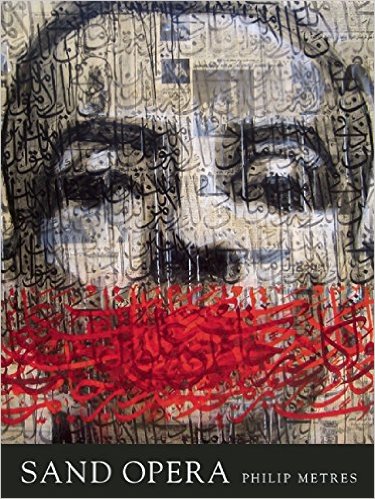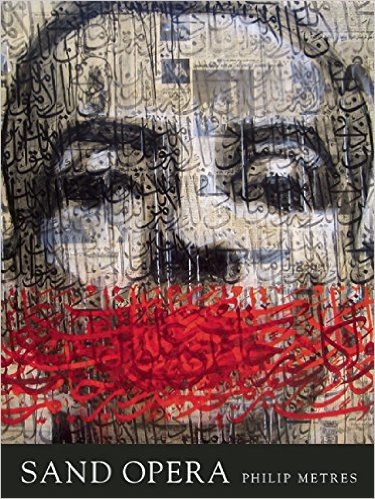A few years ago, two Kandahar-based researchers, Alex Strick van Linschoten and Felix Kuehn, found the Taliban putting poetry on their official website. They edited the Poetry of the Taliban (Hurst, 2012).
Category: Uncategorized
Not About Heroes looks at a poetic bond forged in war | Stage | The Pitch
It’s a true story: war poets Wilfred Owen and Siegfried Sassoon meet in Craiglockhart military hospital in Edinburgh, in 1917, when this play begins. Already, their firsthand knowledge of war — trenches, machine guns, barbed wire, mustard gas — has seeped into their writing.
Source: Not About Heroes looks at a poetic bond forged in war | Stage | The Pitch
From war poet to genocide , Karadzic faces verdict
Radovan Karadzic saw himself as locked in a David and Goliath struggle to save the Serbs even as their forces were reducing the besieged city of Sarajevo to rubble.
Source: From poetry-lover to genocide suspect, Karadzic faces verdict | Reuters
What should we do about Radovan Karadžić’s war poetry?
Karadžić repeated the theme of poet-warrior identity, in which the creative act of poetry is inextricably bound up with the poet’s role as a soldier, an identity which is mirrored in the frequent military motifs and poetry in which war is the subject matter.
Source: What should we do about Radovan Karadžić’s poetry? | openDemocracy
Don Mee Choi and the Adverbs of War ‘Hardly War’ is a linguistic battlefield. By Paul Constant
The Seattle Review of Books – The Adverbs of War by Paul Constant
Choi assembled the book around documents from her father’s career as a photographer in the Korean and Vietnam wars Clearly this impact of his work on her is shown. Her book is constructed from poems, chunks of prose, sheet music, photographs, collage, and even the script for an (incredibly short) opera, Hardly War is unlike anything you’ve ever seen…Hardly War has taken an evolutionary leap of a generation or six beyond its predecessor.
Victoria Kelly’s poems deal with soldiers’ households –
Source: Kelly’s poems deal with soldiers’ households – San Antonio Express-News
Victoria Kelly’s “When the Men Go Off to War” is a poignant collection of poems that personalizes the emotional highs and lows of military family life during times of conflict.
Its powerful prose earns its author — who speaks for family members who deal with it on a daily basis — the right to be placed on any book shelf dedicated to war.
Some touch on the loss of physical presence, the separation anxiety and fear of well-being that family members experience when duty calls, while others highlight personal strength and commitment. In “The Good Wife Before Deployment,” Kelly notes that service members must also be emotionally prepared for separation, and that they also undergo the fear of the unknown that a combat tour brings: “And I know a good wife would understand,/a good wife would know her husband/is afraid of her and God;/he is afraid of having something to lose.” Heroes” captures a multitude of suppressed emotions: “But when you talk about wartime, what you tell me/is how many stars there were, and how/some boys flew a kite on the mountain./What you don’t talk about/is huddling with a group of soldiers in a bunker/while the rockets came over the walls, how/most of you by chance came out, but two did not.
Darfur poet triumphs in international poetry slam | Books | The Guardian
“When I was 7, she cradled bullets in the billows of her robes,” writes Emtithal Mahmoud in the poem Mama, with which she won the Individual World Poetry Slam Championship in Washington DC. “That same night, she taught me how to get gunpowder out of cotton with a bar of soap.”
Source: Darfur poet triumphs in international poetry slam | Books | The Guardian
Behind the Lines: Poetry, War, & Peacemaking: Sand Opera Lenten Journey Day Three
“SandSource: Peter Molin’s Behind the Lines: Poetry, War, & Peacemaking: Sand Opera Lenten Journey Day Three

“Opera asks us to consider the responsibility all Americans bear for Abu Ghraib and to think what we might have done if we were in his place…These poems are a dialogue between Standard Operation Procedure for Camp Delta in Guantanamo Bay, the soldiers who served in Abu Ghraib, and the Abu Ghraib prisoners..”
Source: info
The Words After War Interview with Victoria Kelly by Matt Gallagher
Source: The Words After War Interview with Victoria Kelly by Matt Gallagher
Victoria Kelly’s poetry collection When the Men Go Off to War received widespread critical acclaim since being published in September 2015 by the Naval Institute Press. The Military Times hailed it for “her themes of departure, absence and homecoming [which] are universal in place,” and esteemed poet Dick Allen called it “Meticulously crafted [and] highly readable … one of the finest first collections I’ve read in the last decade.”


